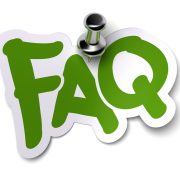Can Private Note Investing Be Part of a Self-Directed IRA Investment Strategy?
Investing in private notes is an attractive way to diversify a portfolio and potentially generate higher returns. But can private note investing be part of a Self-Directed IRA investment strategy? In short, the answer is yes. Absolutely. However, that’s no guarantee of future results, either. That’s why in this blog post, we’ll explore the benefits and considerations of private note investing with a Self-Directed IRA.
What is a Private Note?
Let’s start with defining what a private note is, and how it might fit into your retirement portfolio. A private note is the asset you create when you become the lender in a loan transaction. For example, if you issue a mortgage note, you’re the lender, and not the person acquiring the mortgage. As you might imagine, this means you can immediately create passive income, as the person paying off the private note may have to pay you off every month. But let’s further explore what this approach means.
Benefits of Private Note Investing in a Self-Directed IRA
There are all sorts of potential benefits to private note investing, particularly when you do so with a Self-Directed IRA:
- Diversification: Investing in private notes can provide diversification in your portfolio, as it’s not correlated with other traditional asset classes, such as stocks and bonds.
- Higher Returns: Private notes typically offer higher returns than other types of fixed-income investments, such as CDs and bonds.
- Control: With a Self-Directed IRA, you have control over the investment decisions, including private note investing, rather than relying on a financial advisor to make those decisions for you.
- Tax Advantages: Investing in private notes with a Self-Directed IRA can provide tax-deferred or tax-free growth, depending on whether you’re using a Traditional or Roth IRA.
In other words, you can have as many as four major advantages when you decide to invest this way. But keep in mind that you’re also the one controlling the account. You’re in charge of whether you make smart decisions or not. And that can feel like a lot of responsibility. Let’s explore what that means.
Considerations of Private Note Investing in a Self-Directed IRA
What should you take into consideration if you’re thinking about private note investing within a Self-Directed IRA? Let’s touch on the major points.
- Risk: Private note investing can potentially carry more risk than traditional fixed-income investments. There is a risk of default if the borrower is unable to repay the loan, which is why you might think about issuing secured notes.
- Due Diligence: Conducting thorough due diligence on the borrower and the collateral is crucial before investing in private notes.
- Liquidity: Private notes are typically illiquid investments, meaning it may be challenging to sell them quickly if needed.
- Fees: Investing in private notes may incur additional fees, such as origination fees and servicing fees.
How to Invest in Private Notes with a Self-Directed IRA
The process is simpler than it might sound. Open an account with a Self-Directed IRA administration firm and begin looking for opportunities where your Self-Directed IRA can issue the note. Remember: since this is your retirement account, you can’t carry out personal transactions through the IRA.
Private note investing can be part of a Self-Directed IRA investment strategy, providing diversification, higher returns, and control over investment decisions. However, it’s essential to understand the risks and conduct thorough due diligence before investing in private notes. Working with a professional can help identify and evaluate investment opportunities.
Interested in learning more about Self-Directed IRAs and how they can be used to invest in precious metals and other alternative assets? Contact American IRA, LLC at 866-7500-IRA (472) for a free consultation. Download our free guide or visit us online at www.AmericanIRA.com.







